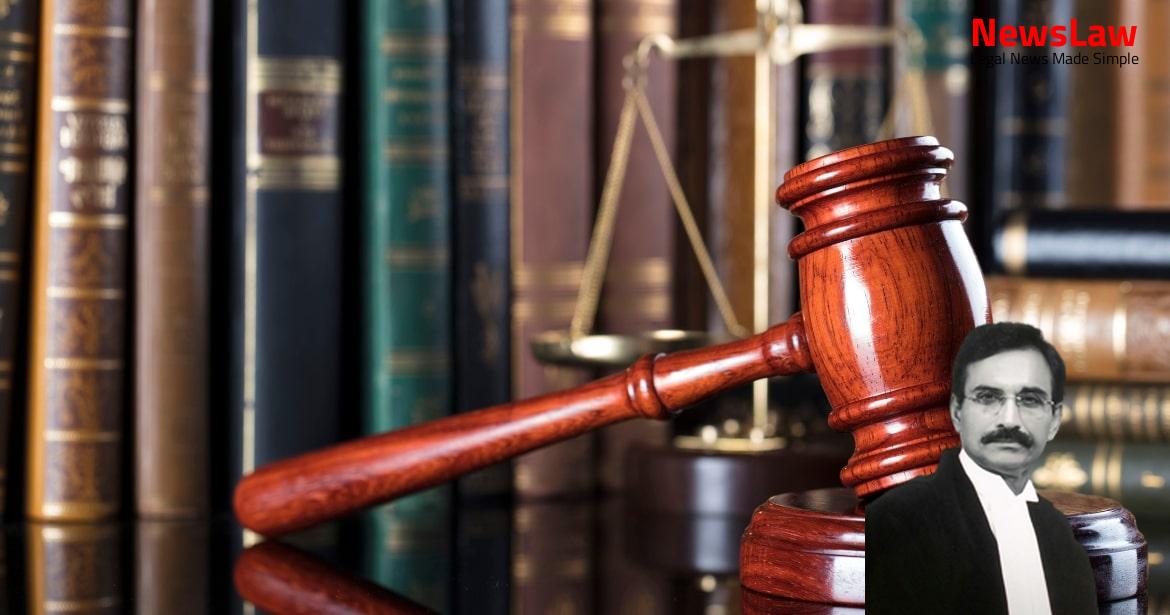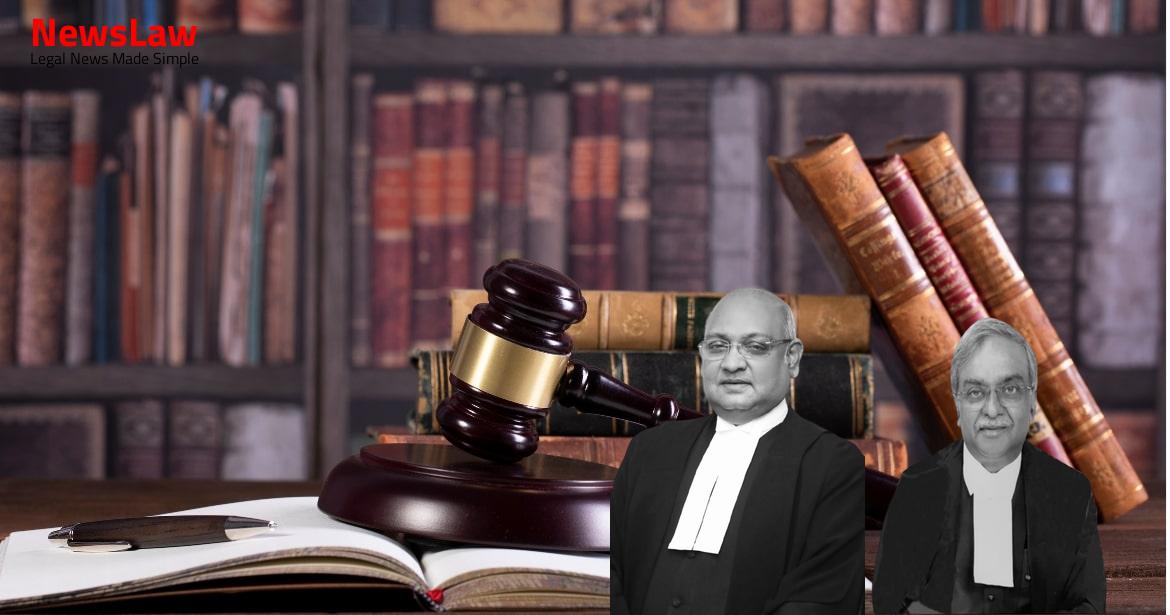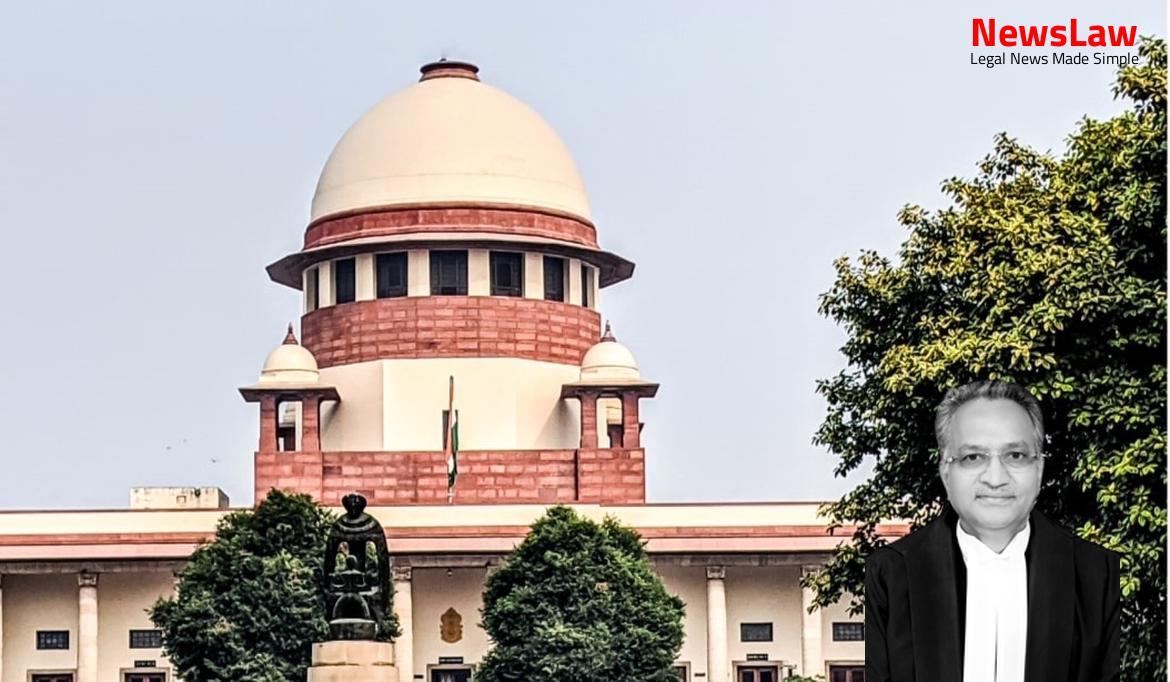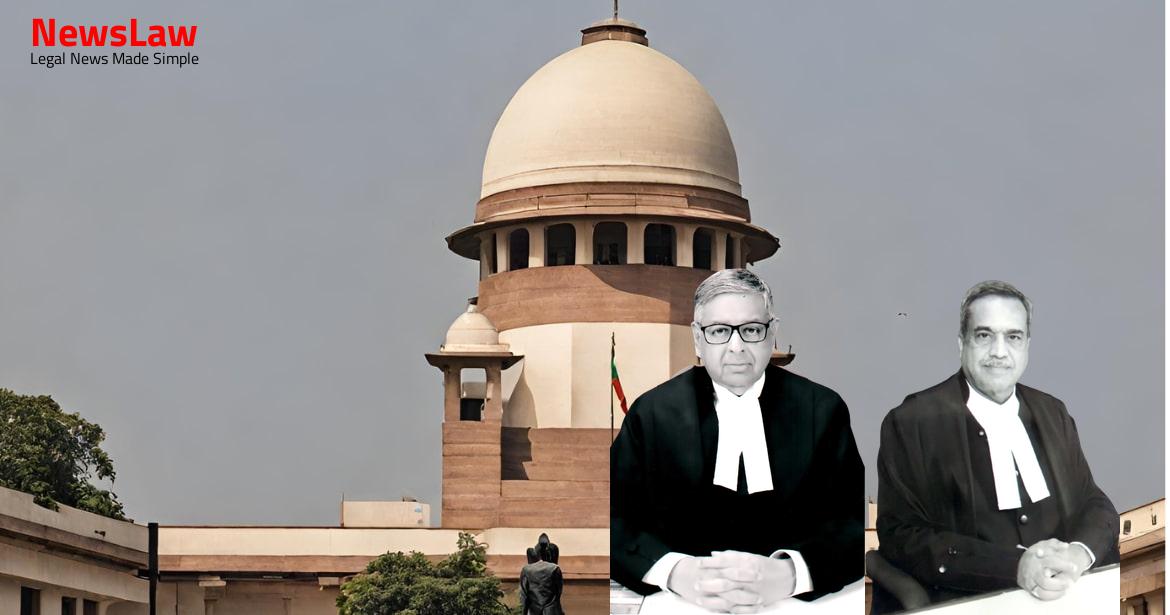Delve into the complex legal intricacies surrounding appointments in aided educational institutions as meticulously analyzed by the court. Unravel the court’s interpretation of statutory provisions and the implications for such appointments in the realm of education law. Stay tuned for a deep dive into the judicial analysis in this significant case.
Facts
- Government of Orissa took over all M.E. Schools in the state with effect from 1 April, 1991.
- High Court directed Director of Elementary Education to address grievances of Hindi Teachers within four months.
- Government issued clarification that benefits extended to Hindi Teachers were only applicable to those appointed against sanctioned posts and drawing salaries from government funds.
- State of Odisha and others filed appeals challenging the judgement of the High Court dismissing their writ petitions.
- Various communications regarding adjustment and termination of Hindi Teachers’ services were issued by the Government over the years.
- Applicants approached High Court with writ petitions after their services were terminated, leading to the filing of present appeals.
- The High Court directed that the services/appointments of the teachers would be continued until decisions were made by the authorities after remand.
- Applicants/teachers were reinstated on 15 December, 2014.
- Show cause notices were issued to the applicants on 22 July, 2015.
- Some applicants filed replies and appeared for personal hearings, while many chose not to do so.
- Services of the applicants were terminated with effect from 22 August, 2015.
- A batch of Original Applications was filed before the Tribunal by the aggrieved individuals.
- The High Court found the termination was done without following the principles of natural justice and set it aside.
- The Tribunal allowed the Original Applications and directed the reinstatement of the terminated applicants as regular teachers in M.E. Schools from 1 April, 2011.
- Similar relief was granted to 137 Hindi Teachers by the Tribunal in subsequent orders.
- State of Odisha filed writ petitions against the Tribunal’s orders, which were dismissed by the High Court.
- The Supreme Court issued notice and granted stay to the impugned judgment and order on 20 September, 2019.
Also Read: Presumption of Genuine Endorsements in Cheque Case
Arguments
- Shri R. Balasubramanian argued that the Tribunal’s view, affirmed by the High Court and not challenged further, has become final.
- The teachers worked in three distinct periods according to Shri Singh: August 27, 1996 to November 4, 1996; March 31, 2011 to March 15, 2014; and December 15, 2014 to August 25, 2015.
- Shri Singh highlighted that the Tribunal failed to consider earlier rejections of similar claims by Hindi Teachers.
- He pointed out that a previous rejected applicant by the Tribunal had a later successful application, questioning the inconsistency.
- Shri Chander Uday Singh argued against the High Court’s finding of discriminatory treatment by the State towards teachers.
- He contended that the tenure length of the teachers was not substantial, requiring further scrutiny prior to absorption.
- The State had framed a absorption policy as a one-time measure in accordance with a High Court order.
- Shri Singh claimed that the appointments made were not in compliance with specific Rules 5 and 6, rendering them invalid.
- Gaurav Agrawal argued that the teachers’ appointments on a non-grant basis did not fall under the mentioned Rules, making them exempt from compliance.
- – The respondent submits that if applicants/teachers were absorbed in pursuance to the policy framed in compliance with the High Court’s directions, the termination would be illegal.
- – The respondent argues that no interference should be made with the judgments and orders passed by the Tribunal and the High Court.
- – The senior counsel for interveners/applicants mentions that similar cases, including O.A. No 3420(C) of 2015, have been allowed by the Tribunal and confirmed by the High Court.
- – The Special Leave Petition (Civil) challenging the High Court’s order was rejected by the Supreme Court on July 19, 2019.
- – It is contended that the issue has attained finality, hence the State cannot dismiss the services of the Assistant Teachers.
- – The respondent emphasizes that despite success in previous legal battles, the applicants/interveners have not been reinstated.
- – Rules 5 and 6 of the said Rules regarding the procedure of application to the Board and appointment of Staff in aided institutions are cited for reference.
Also Read: Medical Negligence and Compensation: A Landmark Decision
Analysis
- Vacancies in teaching posts must be filled through a prescribed selection process by the thirtieth day of September each year
- Selection Board recommends candidates in order of merit for allocation to educational institutions
- In cases of non-acceptance or default in appointment, actions can be taken by the Director
- Procedures for selection of candidates by the Selection Board are outlined
- The Tribunal failed to consider its own earlier orders dated 25 June, 2013 and 23 September, 2013.
- The appointments were made after the schools were recognized as Aided Schools.
- The Tribunal allowed O.A. No.2270 of 2015 for the same relief previously rejected in O.A. No. 4029(2) of 1996.
- The High Court’s order lacked proper reasoning for dismissing the writ petitions filed by the State.
- The appointments were made without following the prescribed procedure under the Rules/Statute for Aided Educational Institutions.
- The Court emphasized the importance of following the detailed selection procedure for appointments in Aided Educational Institutions.
- The Tribunal and High Court failed to consider the Supreme Court’s order in Civil Appeal No. 15712 of 1996.
- The judgments passed by the Tribunal, ignoring its previous detailed orders, lacked judicial propriety.
- Appointments made in violation of statutory provisions are considered void ab initio.
- The High Court observed that the order dated 18 May, 2017, passed by the Tribunal, was not challenged by the State.
- A petition for leave to appeal to the Supreme Court can be dismissed by a speaking order or a non-speaking order.
- If the order of dismissal is non-speaking and does not provide reasons for rejecting the special leave petition, it does not trigger the doctrine of merger or declare law under Article 141 of the Constitution.
- The order does not replace the order in question nor does it establish a precedent under Article 141.
- Relevant judgments in this regard include Ayurvidya Prasarak Mandal and another vs Geeta Bhaskar Pendse, J & K Public Service Commission and others vs Dr. Narinder Mohan and others, Official Liquidator vs Dayanand and others, and Union of India and another vs Raghuwar Pal Singh.
- The Tribunal erred in allowing the Original Applications of the applicants/teachers.
- The High Court also erred in dismissing the petitions filed by the appellants.
- Mere dismissal of the Special Leave Petition does not indicate approval of the High Court’s view by the Supreme Court.
Also Read: Remand of Writ Petition for Restoration and Decision on Merits
Decision
- All pending applications, including applications for intervention, stand disposed of.
- No order as to costs.
- The impugned judgment and order of the Division Bench of the High Court dated 20 December, 2018, in a batch of writ petitions, and the judgments and orders dated 18 May, 2017, and 30 January, 2018, of the Tribunal passed in a batch of Original Applications are quashed and set aside.
- The Original Applications filed by the respondents/applicants before the Tribunal are dismissed.
- The appeals are allowed.
Case Title: THE STATE OF ODISHA Vs. SULEKH CHANDRA PRADHAN (2022 INSC 452)
Case Number: C.A. No.-003036-003064 / 2022



